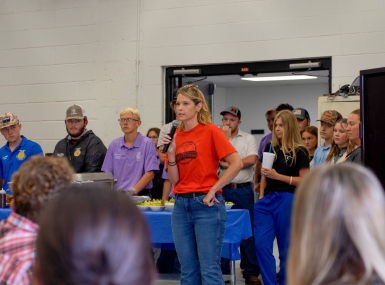HUD releases FAQs on CDBG CARES Act Funding
Upcoming Events
Related News

Key Takeaways
On August 28, the U.S. Department of Housing and Urban Development (HUD) released a frequently asked questions (FAQs) guide on the Coronavirus Aid, Relief and Economic Security Act (CARES) Act Community Development Block Grant funding (CDBG-CV) to summarize HUD’s August 20, 2020 Federal Register Notice (FRN) regarding waivers and program changes for the CDBG-CV and regular CDBG program for activities to prevent, prepare for and respond to COVID-19. CDBG is a vital funding resource for local governments for housing, water, infrastructure and human services programs and has been important for reducing the negative impact of the coronavirus on local communities.
The CARES Act authorized $5 billion in CDBG-CV funds to state and local government entitlement grantees to respond to COVID-19. To date, HUD has provided over $3 billion in CDBG-CV funding nationwide to help local communities combat the coronavirus and alleviate economic hardship. Counties have been utilizing these funds to assist small businesses and provide nutrition and housing assistance to residents negatively impacted by COVID-19. The third round and remaining $2 billion in CDBG-CV funds has yet be awarded to states and local governments. HUD has noted that it will award these funds on a rolling basis as needed, based on COVID-19 related factors.
In general, CDBG-CV grants are subject to the regular CDBG program statutory and regulatory requirements, except as otherwise noted in the CARES Act. The CARES Act CDBG-CV funds may also be used to cover or reimburse allowable costs of activities to prevent, prepare for, and respond to coronavirus incurred by a state or locality regardless of the date on which such costs were incurred. This authority is broader than the authority to reimburse costs with other CDBG program funds, which is January 21, 2020.
The CARES Act provides program modifications and flexibilities for both CDBG-CV and CDBG program which are detailed in the latest HUD-CPD Notice and highlighted in the FAQs document. The CARES Act provides the following program flexibilities:
- Permits a public comment period of no less than five days when citizen participation is required
- Permits expedited citizen participation procedures and virtual public hearings when necessary for public health reasons
- Eliminates the 15 percent public services cap for coronavirus-related activities
In addition, HUD’s August 20 FRN extends the period that grantees can make emergency food, clothing and housing (rental and mortgage) payments on behalf of individuals and families from three consecutive months to six consecutive months.
HUD is preparing to release a series of technical assistance products that describe opportunities for state and local governments to quickly deploy CDBG-CV funds to address immediate needs. As this technical assistance is developed, it will be posted here on HUD’s CDBG-CV webpage.
For additional NACo resources, please see the following links:
- HUD allocates $1 billion in CDBG CARES Act funding to states
- NACo Blog: Support Local Development and Infrastructure Projects: The Community Development Block Grant (CDBG) Program
- NACo Report: CDBG for Counties

Attachments
Related News

Chamber of commerce program helps keep workers on the job
Audrain County, Mo.'s Workforce Resource Assistance Program has helped employers keep staff in place, reducing turnover and promoting stability.

County leadership guides shared prosperity
There’s no chicken-or-egg debate: Economic mobility is not just a byproduct of growth — it is the result of intentional county governance.

Inland port offers opportunity for Hertford County, N.C.
Hertford County, N.C. doesn’t have a lighthouse, but that hasn’t stopped its economic future from shining thanks to what became known as Project Green Lantern.